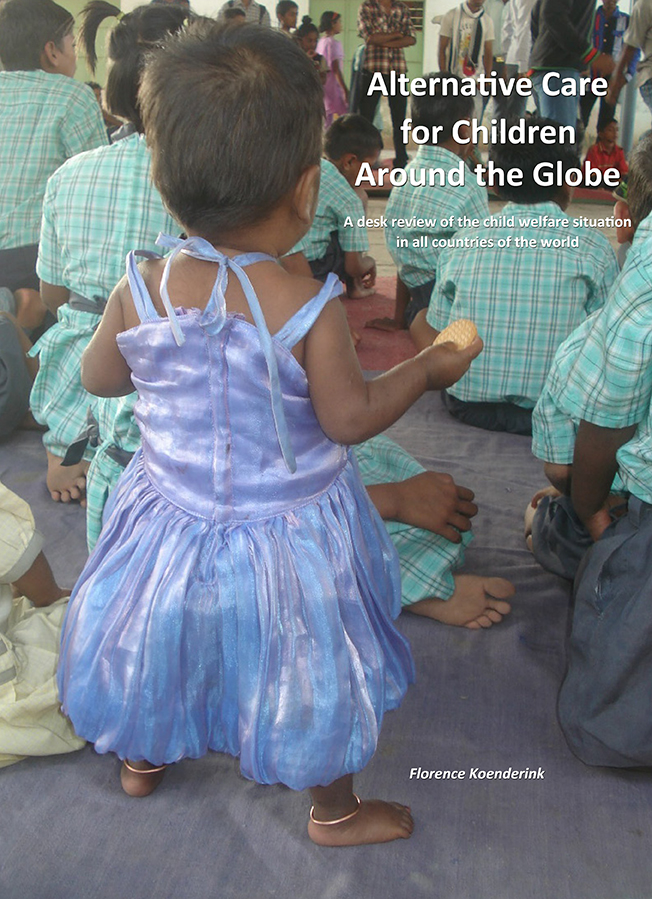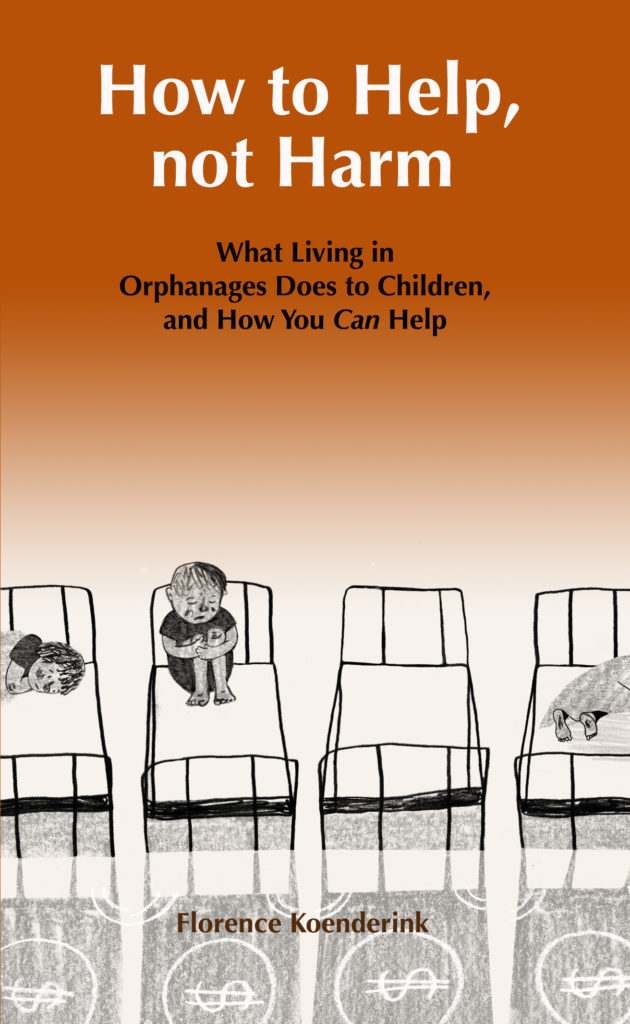Aside from blogs, writing research reports and books are a major part of creating awareness about the consequences of what is being done and of the alternative possibilities. On this page you can order or download different works.
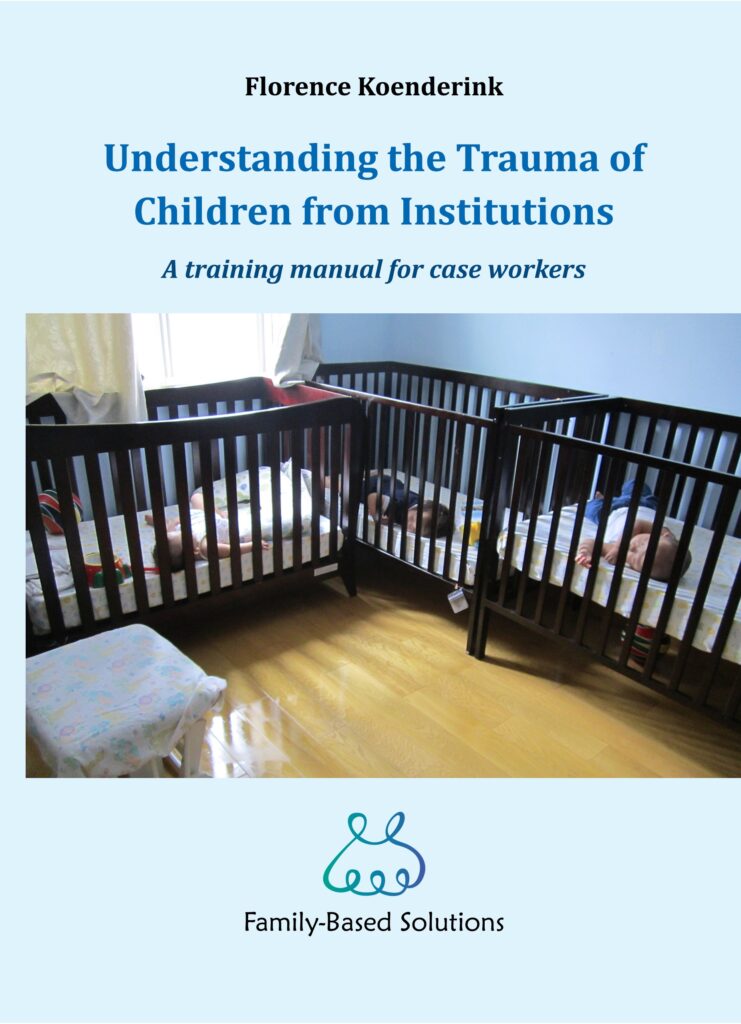
Understanding the Trauma of Children from Institutions. A training manual for caseworkers is a twin to the book mentioned below. It gives the same basic information, but structured as a training manual for those involved in moving children from institutions to families (whether their birth family, extended family, a foster family, adoptive family, guardian or kafeel). Aside from explaining the impact of institutionalisation and how to support children in overcoming the challenges caused by them, the manual provides training points and action points for case workers at the end of every chapter to help them make their assessments effective and help them shape the support and training provided to families.
To order the training manual, you can click HERE.

Understanding the Trauma of Institutionalised Children was written to help people who adopt a child from an institution. Most people are not aware of how significant the impact of institutionalisation is on children, and therefore they are not prepared for the behaviour and responses they can expect when they bring a previously institutionalised child into their home. Being unprepared for this makes it very challenging and can make adoptive parents despair.
To order Understanding the Trauma of Institutionalised Children. To support the child you adopt, you can click HERE.
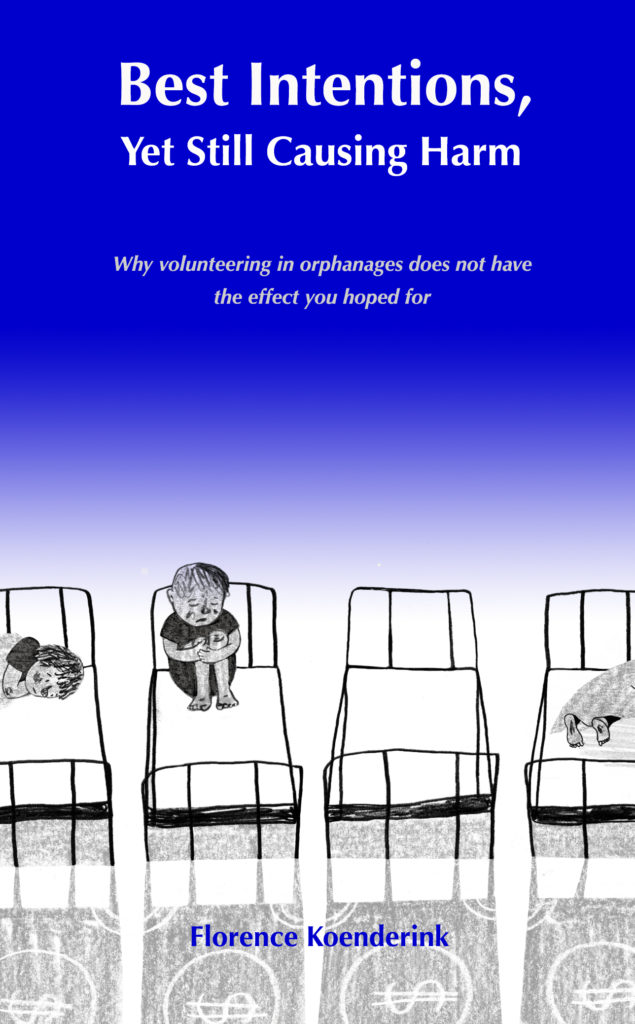
Best Intentions, Yet Still Causing Harm was written to help people understand the impact of volunteering in ‘orphanages’ on the children in them, as well as the general effect of institutionalisation on children. It also gives advice on how to engage in responsible volunteering, to make sure that the best intention also lead to the best outcomes. To order this book, you can click on the following link:
Best Intentions, Yet Still Causing Harm
I have developed a model to give an overview of what is involved in establishing an alternative care and child protection system that fully implements the Guidelines for the Alternative Care of Children, including the steps involved in the transition from institutional to family-based care. You can download the PDF here: Model for Alternative Care Reform
Unfortunately, the COVID-19 pandemic has led to a growing trend of Governments ordering residential childcare institutions to move children out very quickly. Plus, some institutions have returned children to their families with little or no preparation or support at their own initiative. This places children at great risk. This is why I have developed two tools to mitigate the risks: Plan B: Strategy for Childcare Institutions Mandated to Return Children Fast and Strategy to Turn Rapid Reunion of Children into Reintegration. You can download both documents by clicking on those titles. These strategies should only be used in situations where it is impossible to go through the steps described in Model for Alternative Care Reform.
The report ‘Alternative Care for Children Around the Globe’ is the culmination of almost 4 years of research. It gives an overview of the child protection situation in all 195 autonomous countries in the world.
If you would like to contribute towards to costs of producing this report, you can do so through PayPal, using fkoenderink@hotmail.com. However, you may also download the PDF free of charge here:
https://familybasedsolutions.org/wp-content/uploads/2019/04/Alternative-Care-for-Children.pdf
‘How to Help, not Harm’ was written to explain the effects of institutionalisation on children and the effects of donating to ‘orphanages’. To order the book ‘How to Help, not Harm. What Living in Orphanages Does to Children and How You Can Help’, you can click on this link:

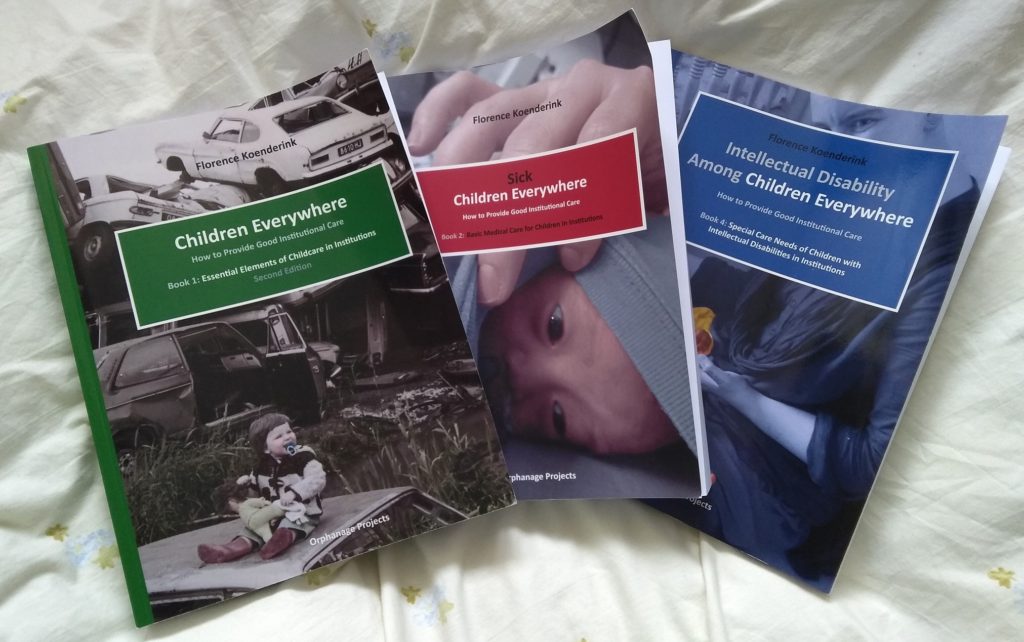
While the series of manuals called ‘Children Everywhere’ was primarily written to help improve the care provided in childcare institutions, the information is also very relevant for the training of foster parents and of caregivers for small group-homes. This is why I am offering these books here. The first, third and fourth manuals can be ordered through most major online booksellers. And the first and fourth through the lulu.com buttons on this page.
To order the institutional childcare manual ‘Children Everywhere’ second edition, the first manual in the series, you can click on this link:

To order ‘Intellectual Disability Among Children Everywhere’, the fourth manual in the series, you can click on this link:



